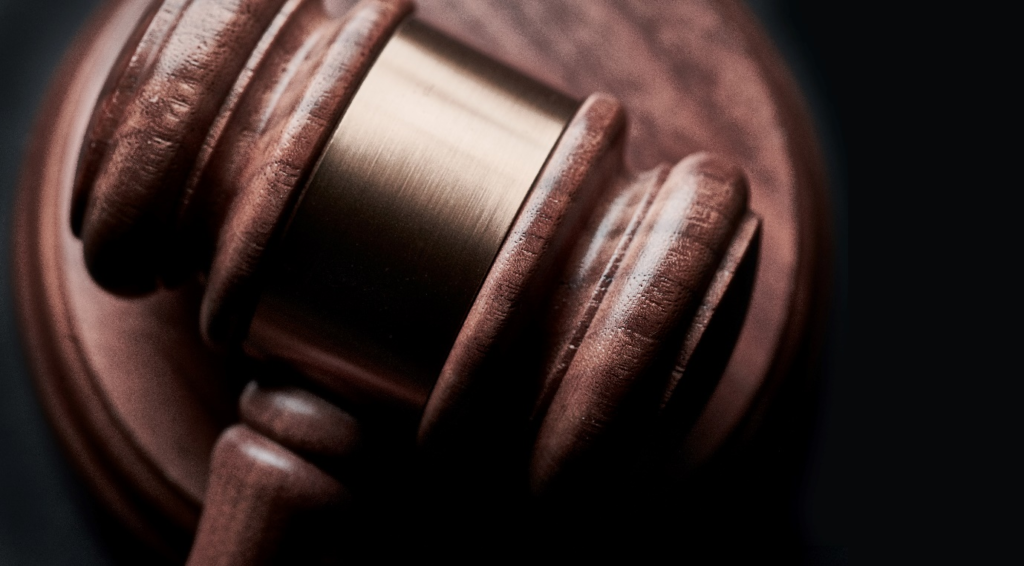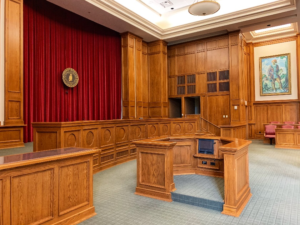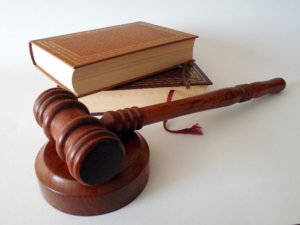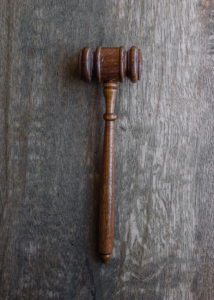
- admin
- January 5, 2021
- 8:07 pm
- No Comments
The Court Officer Job Description
All civil servants are tasked with administering some aspect of the government’s responsibilities, which largely encompasses policies and laws. The most obvious civil servant, given that definition, is a law enforcement officer. They’re responsible for administering and upholding the law in the country and each state’s respective legal code.
However, the civil service comprises a diverse set of jobs. Elementary school teachers, for instance, are also civil servants because they uphold some of the government’s responsibilities. Many states have laws regarding compulsory education up to a certain age. Elementary school teachers are necessary for ensuring that education laws and policies are practiced.
 Another popular government job is a court officer. On the face of it, this may seem like a watered-down law enforcement officer. Part of the reason for that impression is the small area a court officer covers. They’re typically tasked to control and maintain security in a court. However, you need to consider that the people in a court of law are almost constantly at risk. As a result, court officers are policing a perpetually risky space, so the demands of their job are comparable to a police officer’s.
Another popular government job is a court officer. On the face of it, this may seem like a watered-down law enforcement officer. Part of the reason for that impression is the small area a court officer covers. They’re typically tasked to control and maintain security in a court. However, you need to consider that the people in a court of law are almost constantly at risk. As a result, court officers are policing a perpetually risky space, so the demands of their job are comparable to a police officer’s.
More specifically, court officers have to maintain security before, during, and after a trial session.
They’re tasked with protecting all the parties involved in a session, such as the judge, witnesses, and audience. This involves ensuring there’s no contraband in the court, like a weapon, halting disruptions, such as attacks, and escorting jury members and prisoners.
If you’re thinking about becoming a court officer, you’ll have to sit for a civil service exam. However, before you start preparing, you should understand what the job requires from you. Here’s a description of a court officer’s job.
Skills
A court officer requires a certain set of skills to properly conduct themselves and fulfill their responsibilities. Firstly, they need to be able to pick up on signs of an oncoming disruption. If a court officer can pick up on these signs, they can maximize the safety of all parties in the court. Secondly, they need to be able to handle the disruption. It requires an appropriate level of strength and combat training to control uncooperative parties. Thirdly, they need to be qualified to handle a firearm in court.
Besides handling disruptions, court officers also have to help the judge maintain cordial relations between all parties in the courtroom. Court officers also have to understand the legal jargon and practices of the court and how they mesh with federal, state, and local law. Lastly, a court officer needs to have good writing, reading, and speaking skills.
Primary Responsibilities
A court officer’s primary responsibility is to maintain security and order in the courtroom before, during, and after every trial session. They also need to ensure that all parties in the courtroom behave according to the rules and norms of court behavior. Court officers are answerable to the judge, and they’re tasked with enforcing the judge’s orders. Besides that, a court officer ensures that witnesses, prisoners, and jury members remain protected and have their needs met.
 Part of maintaining order in the court involves addressing disruptions. Court officers are empowered to arrest anyone who creates a violent disruption or threatens the safety of the court. They can also arrest overly disruptive individuals. Lastly, court officers are also responsible for preparing case records and documents before every trial.
Part of maintaining order in the court involves addressing disruptions. Court officers are empowered to arrest anyone who creates a violent disruption or threatens the safety of the court. They can also arrest overly disruptive individuals. Lastly, court officers are also responsible for preparing case records and documents before every trial.
Secondary Responsibilities
Court officers also have many secondary responsibilities besides their primary ones. For instance, court officers are entrusted with checking up on defendants and their attorneys to make sure all restrictions (curfews, space, etc.) are being adhered to.
They can also assist with case investigations and refer clients to the required education and social programs. Lastly, they can also be asked to collect and analyze forensic evidence, such as blood, hair, DNA samples, etc.
Requirements
In order to become a court officer, applicants need to have a valid driver’s license, be a US citizen, and be at least 21 years old. Additionally, all court officers need to pass a background check on their criminal record. These requirements apply across the board, but there are more requirements to becoming a court officer.
 There is an education requirement for becoming a court officer, but it varies with state and position. For example, court officers in trial courts may need a high school diploma. In contrast, court officers in higher courts may require an appropriate bachelor’s degree, such as one in forensic science or criminal justice. Lastly, court officers need some experience in security or law enforcement (at least two years).
There is an education requirement for becoming a court officer, but it varies with state and position. For example, court officers in trial courts may need a high school diploma. In contrast, court officers in higher courts may require an appropriate bachelor’s degree, such as one in forensic science or criminal justice. Lastly, court officers need some experience in security or law enforcement (at least two years).
The last requirement is that you need to sit and pass a civil service exam. Preparing for this on your own can be difficult. Even with the best study routine and all the material, there’s still uncertainty, because it’s a new exam. An experienced hand can go a long way in helping you with your preparation, and that’s where we can help. Contact us, at Civil Service Success, and we’ll help you prepare for the NYS Court Officer exams and tests in Westchester.

